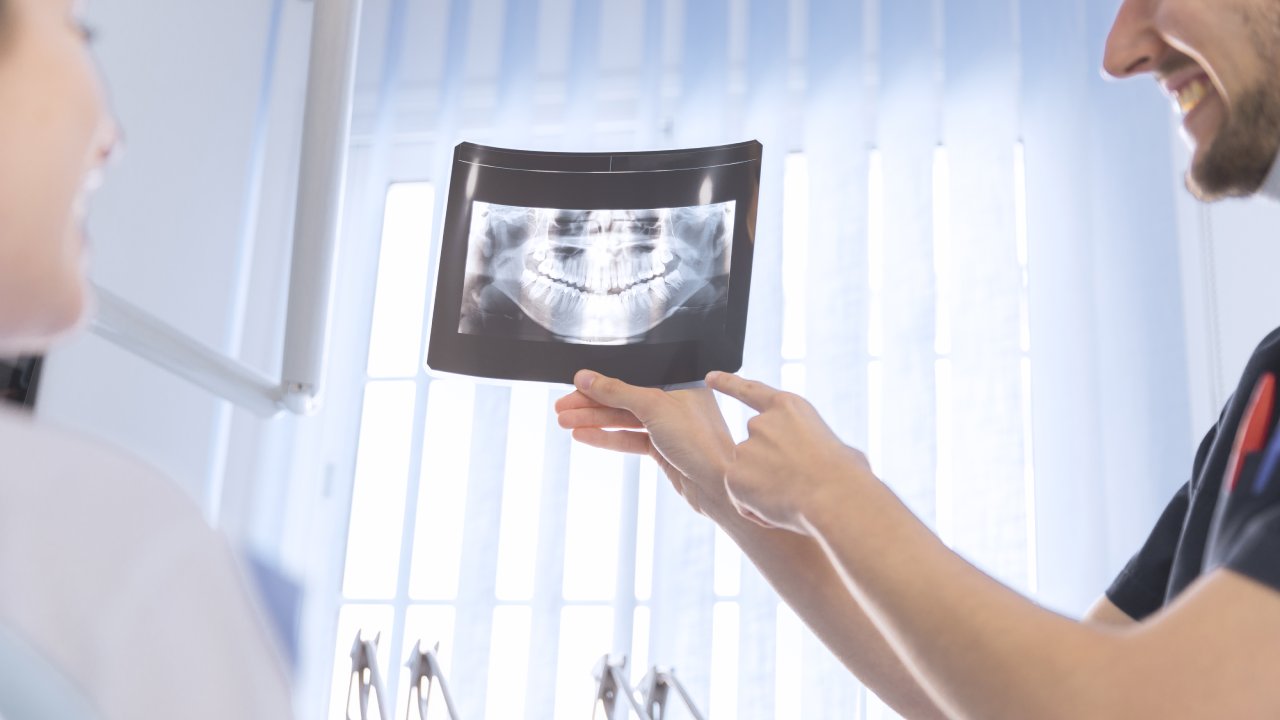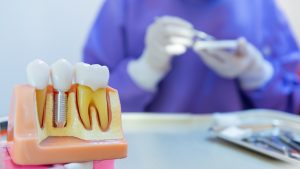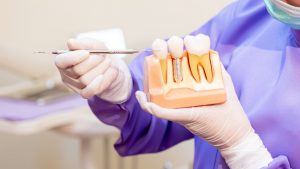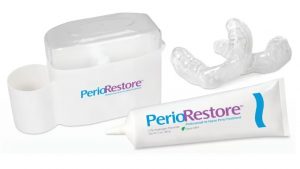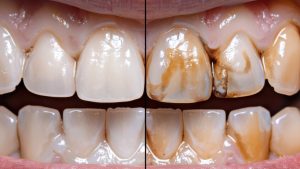A smile is one of the first things people notice about you. When you’re missing a tooth—or several—it can affect your confidence and the way you feel about your appearance. But tooth loss can also impact your ability to speak, eat, and maintain a healthy bite. Fortunately, modern dentistry offers a variety of tooth replacement options to restore your smile and improve your oral health.
Whether you’ve lost a tooth due to injury, decay, or aging, there are several tooth replacement options available that can give you back both form and function. But with so many choices, how do you know which one is right for you?
At MySmile Dental Care, Dr. Mehru Bhatia and the team understand that every patient’s dental needs are unique. That’s why we take the time to assess your oral health, lifestyle, and goals before recommending the best solution for you. In this article, we’ll explore five of the most popular tooth replacement options that your dentist may recommend, so you can make an informed decision about how to restore your smile.
1. Dental Implants
Dental implants offer a permanent and natural-looking alternative to traditional dentures or bridges. Essentially, a dental implant is an artificial tooth root made of biocompatible materials, typically titanium, that is surgically placed into your jawbone. Over time, the implant fuses with the bone in a process called osseointegration. It creates a strong and stable foundation for a crown, bridge, or full denture.
Why Choose Dental Implants?
Longevity:
Dental implants are designed to last a lifetime with proper care. Unlike traditional bridges or dentures, which may need to be replaced or adjusted over time, implants are highly durable and provide a long-term solution to tooth loss.
Natural Look and Feel:
One of the standout benefits of dental implants is that they mimic the look and feel of your natural teeth. Once placed, the implant and crown are indistinguishable from your original teeth, making them a top choice for anyone concerned about aesthetics.
Bone Preservation:
Missing teeth can lead to bone loss in the jaw, as the bone no longer receives the stimulation it needs from chewing. Dental implants are the only tooth replacement option that helps prevent bone deterioration, as the implant acts as a natural tooth root, stimulating the bone and preserving the structure of your face.
Improved Functionality:
Implants restore your ability to chew and speak naturally. This allows you to enjoy your favorite foods and communicate clearly, which can be an issue with dentures or bridges.
Who Should Consider Dental Implants?
People with sufficient bone density can opt for dental implants as implants require a solid foundation in the jawbone. If bone density is insufficient, procedures like bone grafting may be needed to rebuild the bone structure before implant placement.
Good general health is essential, as the procedure involves surgery. Individuals who are healthy enough to undergo minor surgeries are typically good candidates. Additionally, those who do not have uncontrolled chronic conditions, such as diabetes or periodontal disease, may also be better suited for implants. Patients can go for Perio Restore if they are affected by gum issues.
2. Fixed Dental Bridges
A fixed dental bridge is a prosthetic device used to replace one or more missing teeth by securely anchoring to the healthy teeth on either side of the gap. The bridge is made up of artificial teeth (pontics) that fill the space left by the missing teeth, with crowns placed over the adjacent natural teeth (or dental implants) to hold the bridge in place.
Why Choose Fixed Bridges?
A fixed bridge helps restore both the function and aesthetics of your smile. With a bridge in place, you can enjoy eating, speaking, and smiling confidently again. The bridge provides the necessary support to prevent your surrounding teeth from shifting and to help maintain a healthy bite.
Also, these are more affordable than dental implants. While dental implants are a long-lasting solution, they can be more costly and require surgery. Fixed bridges are generally more affordable and don’t require surgical intervention. This makes them an appealing option for people who need a quicker and less invasive solution to tooth loss.
Who Should Consider Fixed Bridges?
People with Healthy Teeth on Either Side of the Gap:
Fixed bridges rely on the adjacent teeth (or implants) to serve as supports. If you have strong, healthy teeth on either side of the gap, you may be an ideal candidate for a fixed bridge. These teeth will be reshaped to hold the crowns that anchor the bridge.
Individuals Who May Not Have Enough Bone for Implants:
Dental implants require sufficient bone density to support the implant posts. If you don’t have enough bone, or if you prefer to avoid the bone grafting procedure required to build up your jawbone, a fixed bridge might be a more suitable choice.
Patients Seeking a Non-Surgical Solution:
Unlike dental implants, which require surgery, fixed bridges can be placed without invasive procedures. If you are hesitant about surgery or have concerns about the recovery time, a fixed bridge offers a non-invasive, reliable solution.
3. Removable Partial Dentures
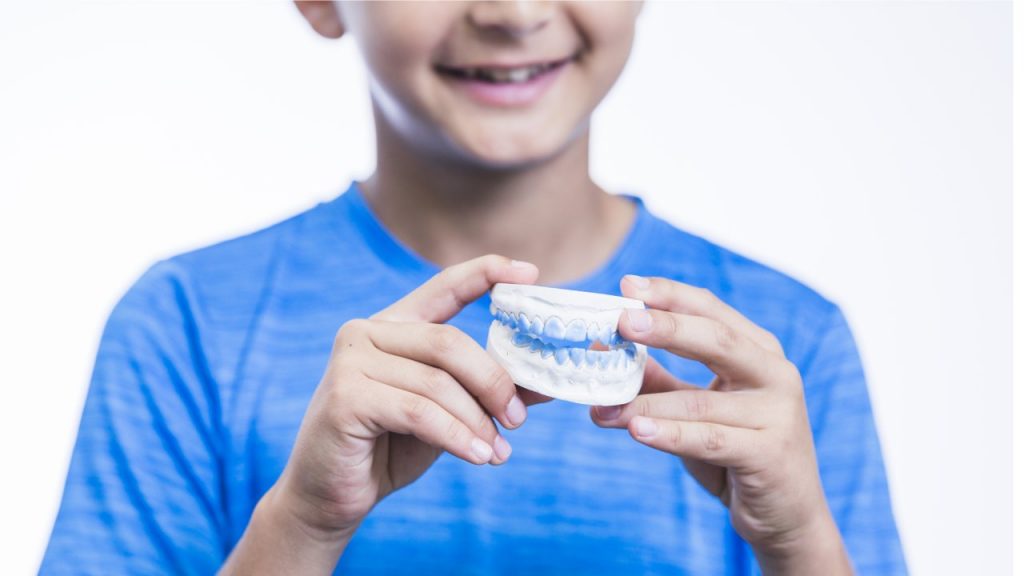
Removable partial dentures are a type of prosthetic device designed to replace one or more missing teeth. Unlike full dentures, which replace an entire arch of teeth, partial dentures are used when a person still has some healthy natural teeth remaining in the upper or lower jaw.
The prosthetic teeth are attached to a plastic or metal base that is custom-designed to fit the patient’s mouth. The base is made to blend with the natural gum color and can be designed to securely clasp onto the remaining teeth for stability.
These dentures are designed to be easily removed for cleaning and maintenance. They offer a more flexible and adjustable solution for individuals with partial tooth loss.
Who Should Consider Removable Partial Dentures?
Removable partial dentures are designed for patients who have lost several teeth but still have a few healthy teeth remaining. These remaining teeth act as anchors to hold the dentures securely in place. Similar to dental bridges, removable partial dentures are preferred by patients who need a non-surgical solution.
Additionally, if dental implants or bridges are beyond your budget, removable partial dentures are an excellent alternative. They allow you to replace missing teeth without the higher cost associated with permanent solutions.
4. Complete Dentures
Complete dentures are a full set of artificial teeth designed to replace all the missing teeth in either the upper or lower arch of the mouth. Unlike partial dentures, which fill gaps between existing teeth, complete dentures are used when all teeth in a dental arch have been lost or extracted.
These dentures are custom-made to fit the shape and size of your mouth. Complete dentures consist of a gum-colored acrylic base that supports the artificial teeth, which are typically made of acrylic or porcelain. The dentures are designed to rest on the gums, providing the wearer with the ability to speak, chew, and smile comfortably again.
Pros of Complete Dentures
Cost-Effective:
Complete dentures are one of the most affordable tooth replacement options available. While the cost can vary depending on the materials used and customization required, they are typically much more budget-friendly than implants or bridges.
Non-Surgical:
Getting complete dentures does not involve surgery. This makes them a good option for individuals who are not candidates for implants or who prefer to avoid invasive procedures. The fitting process is generally quick, and there’s no need for recovery time after the dentures are placed.
Provides Full Tooth Replacement:
Complete dentures are designed to replace all of the missing teeth in a dental arch. They help to restore full functionality and appearance. They allow you to chew, speak, and smile with confidence again, improving both your quality of life and self-esteem.
Improves Facial Structure:
Losing teeth can cause changes to your facial appearance, leading to a sunken look around the cheeks and jaw. Dentures help to support the structure of the face, preventing sagging and restoring a more youthful appearance.
Cons of Complete Dentures:
While complete dentures are designed to fit securely, they may not always stay in place as firmly as natural teeth or dental implants. Some patients may experience issues with slippage, particularly when eating or speaking. To maintain a secure fit, dentures may require the use of dental adhesives.
Moreover, your gums and bone structure may change over time, causing the dentures to fit less snugly. This can lead to discomfort or even sores. As a result, complete dentures often need to be relined or adjusted every few years to maintain their fit and functionality.
5. Resin-Bonded Bridges (Maryland Bridges)
Resin-bonded bridges (Maryland bridges) are a type of dental bridge designed to replace a single missing tooth. They are typically placed in the front of the mouth. Unlike traditional fixed bridges, which rely on crowns placed over adjacent teeth for support, resin-bonded bridges use a metal or porcelain framework that is bonded directly to the back of the neighboring teeth. The false tooth, or pontic, is securely attached to this framework.
Why Choose Resin-Bonded Bridges?
Resin-bonded bridges are particularly effective for replacing missing front teeth, where aesthetics are crucial. The materials used (porcelain or composite resin) can be closely matched to the color of your natural teeth, providing a seamless and natural-looking result. These bridges help restore your smile without drawing attention to the dental work.
On top of that, resin-bonded bridges require minimal preparation of the adjacent teeth. Unlike traditional bridges, which often require significant reshaping and the placement of crowns, Maryland bridges typically only need a slight roughening of the back surface of the neighboring teeth. This means less tooth structure is removed, preserving the integrity of your healthy teeth.
Conclusion
There are several effective tooth replacement options available, each offering unique benefits. Dental implants provide long-lasting, natural results and help prevent bone loss. Fixed bridges restore function and are more affordable, while removable partial dentures and complete dentures offer flexible, cost-effective solutions for multiple missing teeth. Resin-bonded bridges are a minimally invasive choice, especially for replacing front teeth, though they may not be as durable.
Choosing the right option depends on factors like your age, oral health, bone structure, and budget. Whether you’re looking for a permanent solution or a more affordable, removable option, your ideal choice will depend on your personal needs and lifestyle.
Contact MySmile Dental Care today to schedule a consultation with Dr. Mehru Bhatia. We’ll help you find the best tooth replacement option for a healthier, more confident smile!

